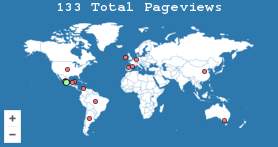Repercusión de la violencia intrafamiliar en las conductas delictivas
Palabras clave:
violencia, crimen, adiccionesResumen
El propósito del presente artículo es realizar una revisión teórica sobre la relación que guarda la violencia intrafamiliar con el desarrollo de conductas delictivas. Inicialmente, se aborda el tema de la violencia, desde su definición hasta los diferentes contextos donde se desarrolla, así como los diferentes agentes que están involucrados. Posteriormente, se revisa cómo estos factores han sido motivo de estudio en diversas investigaciones que reportan su relación con la conducta desviada. Dentro de este trabajo también se describe y analiza la concepción de las conductas delictivas, lo cual permite identificar una relación dialéctica entre estas dos entidades, reconocer su complejidad como punto de partida, así como la posibilidad de construir nuevas conceptualizaciones que apunten a una comprensión diferente que reconoce la diversidad y las oportunidades en su abordaje. Dentro de este análisis se reportan estudios realizados en el Centro Anáhuac de Investigación en Psicología.
Descargas
Referencias
Journal of Adolescence, 27, 113-122. doi:10.1016/j.adolescence.2003.10.009.
2 CAROZO, J.C. (2009).
3 CASTELO, J. (2010). Emotional Dependency and Domestic Violence. Lima-Perú.
4 CICCHETTI, D. (2004). An odyssey of discovery: Lessons learned through
three decades of research on child maltreatment. American Psychologist, 59(8),
731-741.
5 ESTALLO, J.A. (2001). Uses and Abuses of Internet. Anuario de Psicología,
2, 95-108.
6 FERGUSON, C.J., SAN MIGUEL, C. & HARTLEY, R.D. (2009). A Multivariate Analysis
of Youth Violence and Aggression: The Influence of Family, Peers, Depression,
and Media Violence. The Journal of Pediatrics, 155(6), 904-908.
7 UNITED NATIONS INTERNATIONAL CHILDREN’S EMERGENCY FUND (2001. UNICEF in
México. (Web Document) http://www.unicef.org/mexico/derechos/index.html.
8 FRÍAS, A.M., SOTOMAYOR, P.M., VARELA, C.C., ZARAGOZA, O.F., BANDA, C.A. &
GARCÍA, S.A. (2000). Predictors of Juvenile Delinquency. Social Psychology in
México, 8, 486-492.
9 FUNDACIÓN TELEFÓNICA (2008). Interactive Generations in Latin America: Children
and Teenagers before the Screens. España: Ariel.
10 FUNK, J.B. (2005). Children’s Exposure to Violent Video Games and Desensitization
to Violence. Child and Adolescent Psychiatric Clinics of North America, 14,
387-404.
Impact of family violence in criminal behavior
Medicina y Ética 2018/4 1037
11 GARCÍA-AURRECOECHEA, V., DÍAZ-GUERRERO, R., REYES-LAGUNES, I., MEDINAMORA,
M.E., ANDRADE-PALOS, P. Y REIDL, L. (2006). Psycosocial Indicators of motivation
of Cannabis and/or cocaine consumption. Adicciones, 18(4), 387-398.
12 NATIONAL INSTITUTE OF STATISTICS AND GEOGRAPHY (2011). Public Safety and
Justice Survey 2010: Main indicatores. México: INEGI.
13 RAMÓN DE LA FUENTE MUNIZ NATIONAL INSTITUTE OF PSYCHIATRY; NATIONAL INSTITUTE
OF PUBLIC HEALTH MINISTRY OF HEALTH (2012). National Survey on Addictions
2011: Drugs Report. VILLATORO, J., MEDINA-MORA, M.E., FLEIZ, C., TÉLLEZ, M.M.,
MENDOZA, L., ROMERO, M., GUTIÉRREZ, J., CASTRO, M., HERNÁNDEZ, M., TENA, C.,
ALVEAR, C. Y GUISA-CRUZ, V. Mexico: inprfm. Revered from www.inprf.gob.mx.
14 IRELAND, T., SMITH, C. & THORNBERRY, T. (2002). Developmental issues in the impact
of child maltreatment on later delinquency and drug use. Criminology, 40(2),
359-400.
15 MARTÍNEZ LANZ, P., CARABAZA, R. Y HERNÁNDEZ, A. (2008). Predisposing Risk
Factors of Crime in the Female Penal Penitenciary Population. National Council
for Teaching and Reseach and Psychology Magazine (CNEIP), vol. 13. No. 2, 301-
318, July-December, 2008.
16 MARTÍNEZ LANZ, P., REBEIL CORELLA M.A., SÁNCHEZ URIBE, C. (2010). Videogames,
depression, aggressiveness and violence: implications for the psychosocial
health in youngsters, Vital Sign: Strategic Communication for the Promotion of
Health, Trillas. pp.183-199.
17 MARTÍNEZ LANZ, P. (2012). Crime: a psychological approximation about their
causes and consequences. ISBN 978-607-09-1067-8. Porrúa.
18 MARTÍNEZ LANZ P., BETANCOURT O. D., BURNS DE LA TORRE A. y RENDÓN BEYRUTI
L. (2012). Risk Factors associated with male delinquency in Mexico: a study to inmates
at a center for male socialreadaption Revista Criminalidad. ISSN 1794-3108
Vol. 54(1):359-377.
19 MARTÍNEZ LANZ, P., BETANCOURT OCAMPO, D., BLANCO MONTOYA, M., COLINAS
FUERTES, A.M., SAYAG BESO, R. y VILLA FERNÁNDEZ M. (2012). Self-esteem and
Cyberbullying in Mexican Teenagers. Revue Psychologie Internacionale, Práctiques
e recherche. ISSN 2220-5411 No. 3, November, 2012.
20 MARTÍNEZ LANZ, P., LOBO MARTÍNEZ, G., VECCHI MATARREDONA, G. (2012). Violence
and Depression as risk factors in male crime en La Psicología Social en México.
Volumen XIV, pp. 99-104, México: Universidad Autónoma de Nuevo León.
ISBN:968-5411-X.
21 MARTÍNEZ LANZ, P., FERNÁNDEZ DÍAZ, M.J. (2013). Domestic violence, alcohol
consumption and depression in criminal population. Psychology 2013. Vol. 4, No.
3, 153-158. DOI:10.4236/psych.2013.43022.
22 MARTÍNEZ LANZ, P., HERNÁNDEZ VALDEZ, M.P., GARCÍA RUIZ, K., GARCÍA GARCÍA,
M., SUÁREZ VALLE, R. (2013). Factors associated with crime in a penitenciary population.
Revista Iter Criminis number 3, sexth period, pp. 149-164, INACIPE, México.
ISSN 1665-1464.
23 MARTÍNEZ LANZ, P., BETANCOURT, O.D., GONZÁLEZ, G.A. (2013). Use of videogames,
aggression, depresive symptomatology and family violence in teenagers and
P. Martínez Lanz
1038 Medicina y Ética 2018/4
young adults. Colombian Magazine of Social Sciences, Vol. 4, No. 2, pp 161-174.
ISSN: 2216-120.
24 MARTÍNEZ LANZ, P., REBEIL CORELLA, M.A., SÁNCHEZ URIBE, C. (2013). Factors
Associated with the Use of Video Games: Aggression, Domestic Violence, and
Depression. Journal of Modern Education Review, October 2012, Volume 2, No. 5,
ISSN 2155-7993, USA.
25 MARTÍNEZ LANZ, P., SABA CHEREM, S., GALINDO RUIZ, P., LOERA LOBO, G. Y RIVERA
MARTÍNEZ DEL RÍO, M. (2013). Couple Violence towards the male gender and its
relationship with individual and family variables. Revista El Psicólogo Anáhuac,
16: 49-54 ISSN 2007-3429.
26 MARTÍNEZ LANZ PATRICIA, MORALES SÁNCHEZ JONÁS, LENIN ENRIQUE, HERNÁNDEZ
CASTELLANOS PAOLA, RODRÍGUEZ PACHECO DANIELA Y PARGA VALIÑAS GIMENA.
(2014). Violence in datting. Revista El Psicólogo Anáhuac, en prensa.
27 MARTÍNEZ LANZ, P., GONZÁLEZ GONZÁLEZ, A., TORICES DARDÓN, A., CANCINO GONZÁLEZ,
G., LIZMI ROMANO, S.L’GAMIZ MATU, A. (2014). Family violence and alcohol
and ilegal drug consumption in Mexican Youngsters.
28 MOLNAR, B.E., CERDA, M., ROBERTS, A.L. Y BUKA, S.L., (2007). Effects of neighborhood
resources on aggressive and delinquent behaviors among urban youths.
Am J Public Health. (2):7.
29 MORRIS G. y MAISTO, A. (2001). R. México, Pearson.
30 NEBBITT, V.E. & LOMBE, M. (2008). Assesing the moderating effects of depressive
symptoms on antisocial behavior among urban youth in public housing. Child
and Adolescent Social Work Journal, 25(5), 409-424.
31 OLSON, C.K., KUTNER, L.A. & WARNER, D.E. (2008). The role of violent video
game content in adolescent development. Boys’ perspectives. Journal of Adolescent
Research, 23(1), 55-15.
32 OMS (2002). World reporto on violence and health. Washington, DC: OPS.
33 PORTER, G. & STARCEVIC, V. (2007). Are violent video games harmful? Australasian
Psychiatry, 15(5), 422-426.
34 ROE-SEPOWITZ, D. (2009). Comparing male and female juveniles charged with
homicide: child maltreatment, substance abuse, and crime details. Journal of Interpersonal
Violence.
35 SABOL, W., COULTON, C. & KORBIN, J. (2004). Building community capacity for
violence prevention. Journal of Interpersonal Violence, 19(3), 322-340.
36 THORNBERRY, T., IRELAND, T. & SMITH, C. (2001). The importance of timing: The
varying impact of childhood and adolescent maltreatment on multiple problem outcomes.
Development and Psychopathology, 13, 957-979.
37 VILLATORO, J., GAYTÁN, F., MORENO, M., GUTIÉRREZ, M.L., OLIVA, N., BRETÓN, N.,
LÓPEZ, M.A., BUSTOS, M., MEDINA-MORA, M., BLANCO, C. (2011). Drug usage
trends in Mexico City: Student’s survey of 2009. Salud Mental, 34, 81-94.
38 VLADIMIRSKY, G., SÁNCHEZ, M.O.P. & MARÍN, C.A.E. (2003). Consequences of
child abuse in the self-esteem and school performance. Bachelor’s Degree Thesis,
Universidad Anáhuac. México.
Impact of family violence in criminal behavior
Medicina y Ética 2018/4 1039
39 WEIS, R. (2007). Effects of playing violent videogames on Chinese adolescents’
pro-violence attitudes, attitudes toward others, and aggressive behavior. CyberPsychology
and Behavior, 10(3), 371-380
Descargas
Publicado
Número
Sección
Licencia
Medicina y Ética se distribuye bajo Licencia Creative Commons Atribución-NoComercial-CompartirIgual 4.0 Internacional.
El autor conserva los derechos patrimoniales sin restricciones y garantiza a la revista el derecho de ser la primera publicación del trabajo. El autor es libre de depositar la versión publicada en cualquier otro medio, como un repositorio institucional o en su propio sitio web.


































